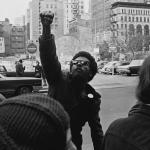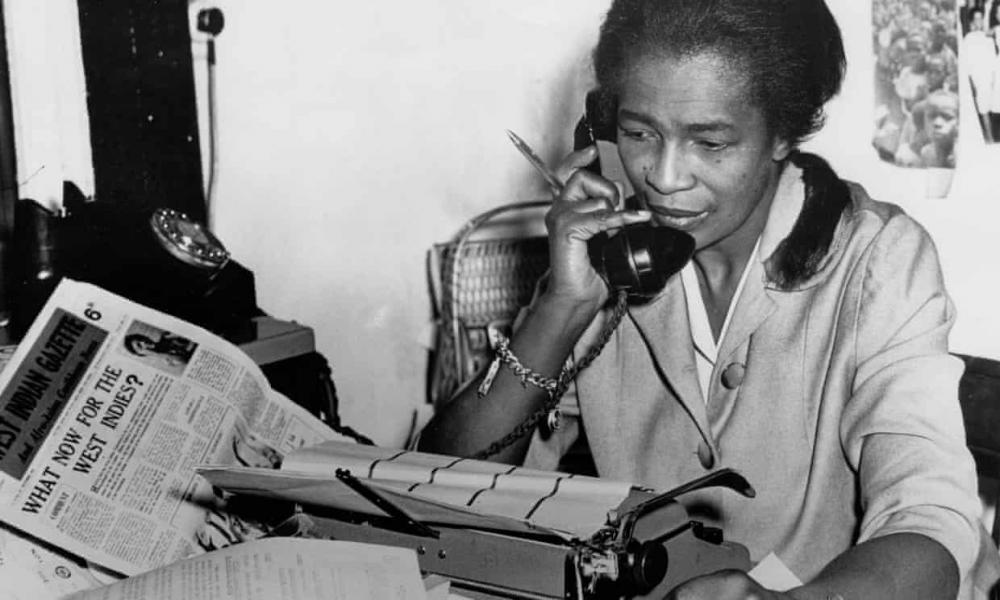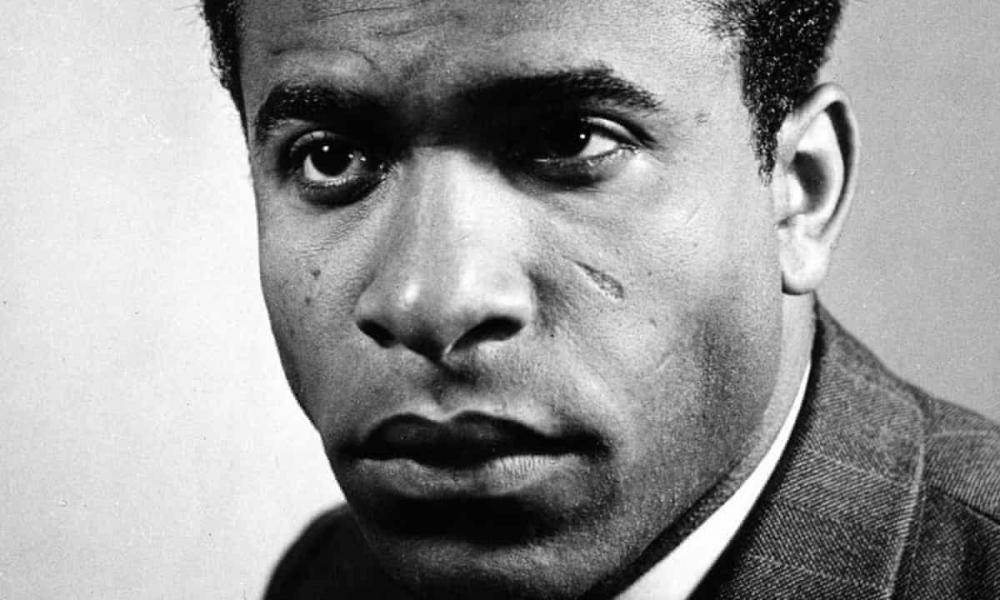Top 10 Books About Black Radicalism

As we enter into the annual celebration of all things black for a month, it is the perfect time for a reminder of the diversity in black political thought. We have disagreed with each other more than we have with white people and there exist a number of different ways that we have understood and fought for liberation.
The politics of black radicalism are misunderstood and misrepresented, often written off as anti-white, violent and led by men intent on dominating women. In this lazy caricature we have dismissed one of the most important political movements, and the aim of my book, Back to Black, is to reclaim black radicalism, which is as vital for this generation as it has ever been.
Malcolm X best articulates black radicalism, which seeks nothing short of a revolution to overturn the racist social order. He is not featured on the list because there is no single book that captures the range and depth of his social theory. In remembering Malcolm, we have enshrined the stereotype of black radicals, while ignoring the political programme. The Autobiography of Malcolm X, written by Alex Haley, is the most guilty of this cultivation of his image, purposefully leaving out the account of Organisation of Afro-American Unity, the very project Malcolm was working at when he died. Subsequent collections of speeches highlight the version of Malcolm that the editor wanted to portray. To truly appreciate Malcolm X, listen to his speeches. Ten books that do provide a good basis for understanding the politics of black radicalism are:
Malcolm X best articulates black radicalism, which seeks nothing short of a revolution to overturn the racist social order. He is not featured on the list because there is no single book that captures the range and depth of his social theory. In remembering Malcolm, we have enshrined the stereotype of black radicals, while ignoring the political programme. The Autobiography of Malcolm X, written by Alex Haley, is the most guilty of this cultivation of his image, purposefully leaving out the account of Organisation of Afro-American Unity, the very project Malcolm was working at when he died. Subsequent collections of speeches highlight the version of Malcolm that the editor wanted to portray. To truly appreciate Malcolm X, listen to his speeches. Ten books that do provide a good basis for understanding the politics of black radicalism are:
1. Stokely Speaks: From Black Power to Pan-Africanism by Kwame Ture (1971)
This was the first book I read from my parents extensive bookshelves, mostly because of its comical front cover with Stokely Carmichael (later Kwame Ture) in sunglasses, holding a shotgun over his head. It is no exaggeration to say that this book, more than any other, changed my life. After reading how he connected the black American situation with the global struggle for freedom, nothing ever looked the same again.
2. Garvey and Garveyism by Amy Jacques Garvey (1963)
The Universal Negro Improvement Association, founded in 1914, grew into largest and most influential black political organisation of all time. At its peak it had millions of members across the African diaspora, long before the days of social media or even widespread use of the telephone. Marcus Garvey is most credited with the rise of the organisation, but black women were the backbone of the movement, representing more than half of the membership. Amy Jacques Garvey was indispensable to the organisation and curated the memory of her husband in both the Philosophy and Opinions and in Garvey and Garveyism, which also includes her own writing.
3. Africa Must Unite by Kwame Nkrumah (1963)
At the heart of black radicalism is the idea of the African revolution, a process that ultimately tears down colonial borders and creates a unified state that can provide for all people on the continent and in the diaspora. Nkrumah, the first president of Ghana, which had the first successful liberation struggle in what is known as sub-Saharan Africa, presents the best case and vision of the African revolution.

Photograph: FPG/Getty Images // The Guardian
4. Beyond Containment by Claudia Jones (2010)
A collection of speeches and writing from one of the most under-appreciated black radical activists. Born in Trinidad, Jones was deported from the US because of her communism to Britain, where she made an immediate impact. Jones founded the first black newspaper in the nation, the West Indian Gazette, and started what became Notting Hill Carnival in the aftermath of the 1958 race riots. Her work is also a reminder of the role that black activists have played in the development of Marxism.
5. Black Jacobins by CLR James (1938)
In 1804, the people of Haiti completed the only successful slave rebellion in history, liberating themselves from the shackles of France. James charts the history of the revolution and all of the factors that went into its success. Across Africa, the Americas and the Caribbean, there was never any passive acceptance of the system, with revolts led by Zumbi (Brazil), Bussa (Barbados) and Sam Sharpe (Jamaica).
6. Assata: An Autobiography by Assata Shakur (1987)
Shakur’s story has continued to inspire a generation of activists. Convicted of killing a state trooper in 1973, a charge she has always denied, after years of abuse and giving birth in prison she managed to escape in 1979. To this day, Shakur lives with political asylum in Cuba. As well as an inspiration, she is a reminder that the system she fought against is alive and well.

Photograph: Handout // The Guardian
7. The Wretched of the Earth by Frantz Fanon (1961)
A classic text by an influential theorist of liberation. Fanon lays bare the hypocrisy of the purveyors of horrendous colonial violence, who insist that the oppressed be peaceful in their resistance. The book also presents a forensic analysis of the limits of national struggle and builds on Fanon’s Black Skin, White Masks, which examined the necessity of a revolutionary identity to bring about social change.
8. The Revolution Has Come by Robyn Spencer (2016)
The Black Panther Party for Self-Defense was one of the most important liberation movements of the 20th century, but also had an intellectual impact. It was almost impossible to choose between Huey P Newton’s Revolutionary Suicide; Bobby Seale’s Seize the Time; and Elaine Brown’s A Taste of Power for an account from the Panthers themselves. However, Spencer’s book provides an excellent overview of the birth of the movement, its impact, and importantly the role of women, who comprised more than 60% of the party membership.
9. Revolution in Guinea by Amílcar Cabral (1979)
The first task in reviving radical politics is convincing people that revolution is possible. Less than a lifetime ago, it was not clear that capitalism would survive the threat from communism and revolts across developing countries. Revolution in Guinea is an account on the roots and practice of the liberation struggle, which ultimately succeeded after Cabral’s death in 1973. Although the revolution ultimately failed to transform Guinea, it is important to learn from these experiences of struggle.
10. Black Feminist Thought by Patricia Hill Collins (2000)
Universities were the sites that produced the very racism we are fighting, and they maintain white privilege today. Hill Collins provides a blueprint for bridging the gap between the ivory tower and black communities in the form of black feminist thought. By embracing the standpoint of the oppressed, even pampered academics can reach beyond our privileged location and engage in the struggles for liberation outside the hallowed walls of the university.
[Essayist Kehinde Andrews is professor of black studies at the United Kingdom's Birmingham City University.and the author of Back to Black: Retelling Black Radicalism for the 21st Century (Zed Books, 2018). The latter book was reviewed at the time of its publication in The Guardian HERE ]
